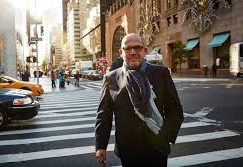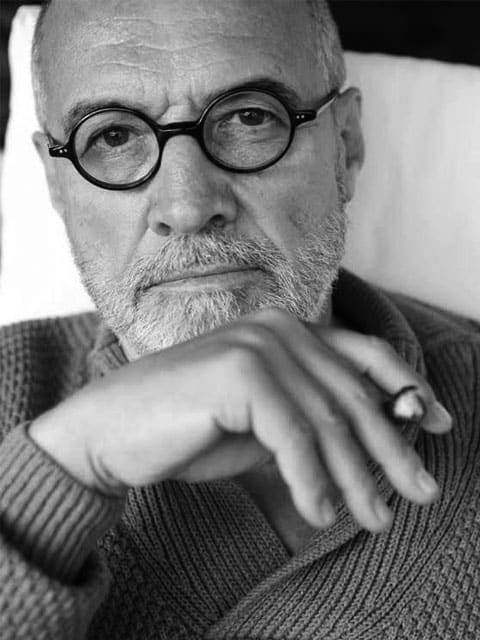Two maestros now earn $3 million from US orchestras
mainDrew McManus has put together the pay scale for music directors, taken from 2015/16 orchestra accounts. It’s a grim read.
Jaap Van Zweden continued to make an absolute killing in Dallas – can New York even afford him?
Riccardo Muti crossed the $3 million threshold in Chicago and MTT is doing well in SanFran with his long-service bonuses.
Here’s the score that really matters: what maestros make –

1 Dallas Symphony: $3,642,804
2 Chicago Symphony: $3,046,137
3 San Francisco Symphony: $2,600,275
4 Los Angeles Philharmonic: $1,983,314
5 New York Philharmonic: $1,793,837
6 Cleveland Orchestra: $1,406,143
7 Philadelphia Orchestra: $1,339,333
8 Boston Symphony: $1,301,000
9 Saint Louis Symphony: $1,041,851
10 Pittsburgh Symphony: $918,550
Read on here.
See also Who’s America’s top-paid orchestral exec and Covent Garden’s Pappano is seriously underpaid.





The Dallas board must be out of its collective mind.
And now the NYPO as well..
Well that’s a free market for you. As long as the donors and subscribers are prepared to keep doling out the dollars the Maestri will continue to pick them up. As someone not well versed in these strataspheric earnings, I actually think Pappano is overpaid even allowing for what he could earn elsewhere, could someone tell me why Dallas of the ones highlighted pays what it does?
Why else would any reasonable human being want to be in Dallas?
I thought Fabio was going there because he likes the town.
And I thought he was going there for the gun culture and the funny hats.
You can get tall drinks there too.
These numbers need to be qualified by how many concerts, tours and recordings are included in each individual contract. And what supplemental payments and services are part of the contract.
Otherwise it‘s comparing oranges and watermelons.
Drew’s post has a lot of qualifications that flesh out the numbers. Obviously, the bonuses, first-class seats, limousines, tax write-offs and other perks are not part of the baseline compensation.
Board members are made up of the extremely wealthy, to whom these salaries seem normal–even low–for somebody in a quasi-CEO position. Also, compared to Hollywood stars, or top professional athletes, they’re modest figures. Sadly.
As has been noted before, JvZ’s pay included retention bonuses (though that didn’t seem to have worked out) and targeted donations from certain contributors – though why some wealthy Dallas folks would give money to the DSO only for the MD salary mystifies me. Whether the NYPO can afford him is their business; presumably both sides came to a mutually-agreed figure.
I imagine that they are also big taxpayers?
Drew lists 64 orchestras. Nine have music directors earning more than a million. Nineteen have MDs making less than $200,000. That’s not very grim, unless you’d like regional orchestras to pay better. I suspect Dallas was able to attract Luisi by offering to pay him well.
How much do leaders of top European orchestras earn? I would think it’s similar order of magnitude, no? Are Sir Simon, Kirill Petrenko (in his current job), Mariss Janssons, or Riccardo Chailly working for significantly less?
Is it oil related ?
No. They’re in tight with the “Big Solar” cartel. Hundreds of millions, I hear. Solyndra ring a bell?
You can have four Alsops (women) for the price of a Van Zweden (man).
People simmer down:
> These are non profits. They have to pay the Maestros these salaries so that they don’t show a profit.
> Remember that the Maestros get these annual salaries for working 10 weeks a year at their resident orchestras. Have any of you tried to have Chicago style pizza delivered in a provincial town like Dallas? It’s a real hardship.
> Don’t forget that they get to keep their Frequent Flyer miles. I am sure that those were not calculated in these numbers.
No, that’s not how non-profit status works in the US. Being a non-profit means that any excess revenue over the organization’s costs is not paid to shareholders or investors. A non-profit can pay large or small salaries, dependent mostly on how much money they have. Many non-profits pay small salaries because they don’t have the financial ability to do otherwise. Some non-profits pay large salaries because they can. It is not, however, the case that a non-profit will pay a large salary “to make sure it doesn’t turn a profit” in any given year. As a practical matter, paid orchestras of any size rarely cover their costs from ticket sales, and it is only fundraising that keeps them remotely solvent.
I believe the Old Man had his tongue in his cheek when putting forward this interpretation of how non-profits work.
Indeed my tongue was in my cheek!
It is unfortunate that some on this board take things too seriously.
McManus likes people to think that he is the “Woodward and Bernstein” of the orchestra business. These figures mean little unto themselves, as there are certainly many factors which go into determining salary. Nevertheless, a person is “worth” whatever someone is willing to pay them.
“Old Man in the Midwest,” you can take the tongue out of your cheek now!!
It is now out of my cheek. Thank you for helping me pull it out.
Being a believer in the University of Chicago free market approach to all things financial, I have to agree with those who say that in these situations, what one can get from the market in terms of their personal labor and talent, should be the rule.
But I still find it amazing that some of the talent on this list has hoodwinked their board to pay them the salaries they are getting when in reality they are no more than glorified school masters.
Perhaps it is my envy that is leaking out of the cheek now that my tongue has been released.
I know there are all sorts of apples & oranges issues of comparing these numbers, but if you look at the ratio of music director comp to total orchestra expenditures, Dallas is a real outlier, suggesting that their Board is either out of control, total amateurs or fiscally irresponsible.
Boston 1.3%
CSO 3.81%
Cleveland 2.5%
Dallas 9.72%
LA Phil 1.52%
NY Phil 2.34%
Philly 2.65%
SF 3.44%
Good point about Dallas.
I noticed that Boston spends 1.3% of its expenditures on the music director. The BSO is on the low end, though by no means an outlier. Then again, the BSO has a development staff of 36, while the Chicago Symphony has 25, and spends 3.81% of its expenditures on the music director. Very confusing to the outside observer.
Like all big US charities, major US orchestras have huge expenditures on fundraising. And the music director’s position is in some ways part of it.
(I suspect William Osborne will take a cue and make his case of government funding – good luck with that in the US Congress.)
The ratios will vary depending on the success of the annual fundraising and corporate sponsorship, but in my simple math, all but Dallas fall into that 2-4% of total. Dallas is closer to 10%. No question they are over paying, though perhaps that is what it takes to get talent to Dallas. Dallas just has less to spend on programs, outreach, the admin team and the rest of the players, perhaps causing a little friction with the music director?
You really need to look at these numbers over a stretch of several years to be certain that they are really representative of reality. If the numbers for 3 years running show Dallas paying more than anyone else, then they probably are. But the way compensation is reported on the forms Drew looks at, you can have spikes due to the timing of one-time payouts (signing bonuses, deferred bonuses, etc.) that make it look like someone earns much more than they do on a sustained basis. And the recipients of that pay sometimes want to be paid through other parties for tax reasons which can distort the picture for someone trying to make a comparison like this.
You also have cases like Pappano at the ENO, mentioned elsewhere. He gets a relatively small fixed salary (for his managerial work, presumably) and concert fees on top of that. Other music directors may get a fixed sum for the entire job, with no breakout of how the figure is arrived at (this seems to be more common), even though a very similar calculation may have been used to decide on the fixed sum. It’s not impossible to imagine a US MD with such a pay structure opting to have the conducting fees paid through a corporation and the management portion paid as salary. If that corporation is also supplying soloists to the orchestra, you would just see the overall total payment to that corporation for all of the performances, with no breakdown of how much of that was the MD, how much was the latest hot violinist, cellist, singer, etc.
1 maestro and 1 maniac.
I don’t know what Sweden is doing at Dallas, but the video that I heard sounds great. I was very surprised by what I heard.
I would pose the question, “How do these figures compare with those of top bankers?” As far as I know, bankers earn at least twice as much as Muti, without taking into account the free bundle of shares they get plus other bonuses.
Yes, but bankers are legal robbers. And good conductors to the contrary give everything back they rob first, and even a bit more. So you can’t compare the two professions.
Bankers need to make much more money, since they have to live with the stigma to being the moral bottom of mankind. Who would want to do such a job anyway?
I suppose that I shouldn’t treat this response seriously, but if I did, I’d ask “what’s a banker?” Someone who works for a bank? In the US, there are more than 6500 banks. The ten largest US banks employ more than one million people. Are they all “robbers”? Or do you mean the investment banks, like Goldman. That’s a lot of people at the “moral bottom” of humanity. There is not much about your statement that makes sense anyway.
I did specify “top bankers”, by which I meant the administrators, not the managers or bank clerks.
True – agree.
Hey, if this is an incentive for a kid to go to Juilliard rather than MIT, bravo !!!
I think a good number in the bay area will be happy to show MTT the door (happening in two more seasons), given how much he repeats repertoire in S.F. Then again, to be fair, I think he met a fair amount of resistance to his “Mavericks” program. The long guessing game of who’ll get S.F. has already begun. Any takers?